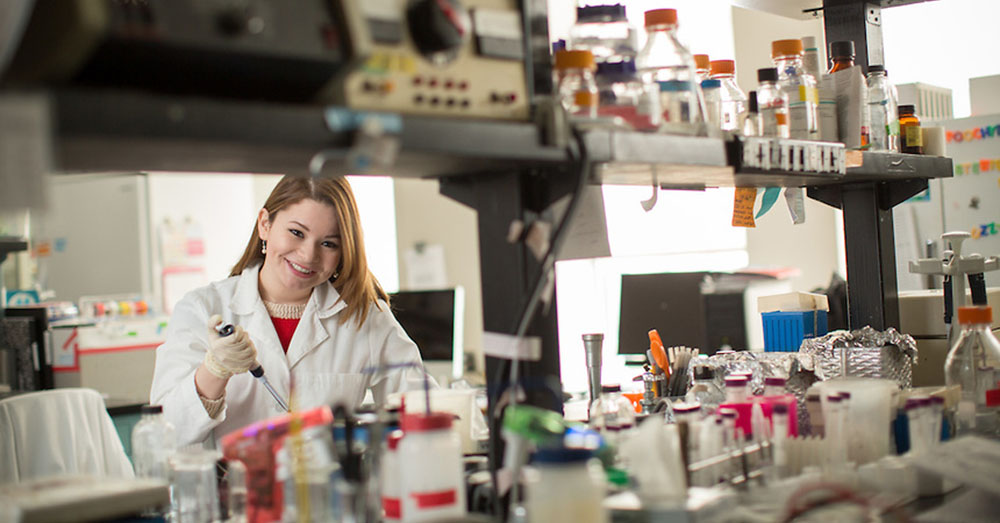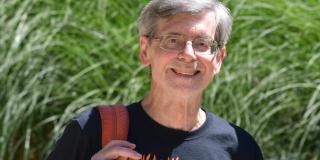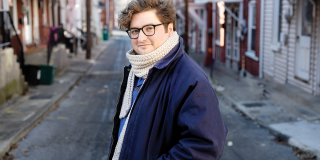Michelle Juarez '16 explores the microsopic world of bacteriophages
For Michelle Juarez ’16, the excitement comes from the discovery. The behavioral neuroscience major is exploring a virus with possible medical value, and she is one of a select few who are honing their research skills through independent projects in Lehigh’s department of biological sciences. Together with molecular biologist Vassie Ware, Juarez explores the function of a specific gene in a bacteriophage.
Bacteriophages, commonly known as phages, are a type of virus that infects and replicates within bacteria after injecting their genome into the host’s cytoplasm. Phages are widely distributed in locations populated by bacterial hosts, such as soil or the intestines of animals, yet little is known about their function. Phages have been used in European countries as an alternative to antibiotics. Juarez ’16 hopes to determine the function of the gene in order to create the smallest viable bacteriophage for clinical use in gene therapy against antibiotic resistant diseases.
In order to determine gene function, Juarez is using a technique called gene knockout where by one or more genes in a phage’s chromosome are made unusable. She removes one gene while leaving the other genes intact and properly functioning. She then observes what kind of changes take place in the phage. Depending on the changes she sees, she can determine the function of the gene. Determining this gene function in a phage has proven to be a tedious process for Juarez, but she doesn’t let it stop her.
“One of the reasons I love my research project is because it has an application to it,” Juarez said. “If we could somehow develop this viable bacteriophage, it could really be of use in the world for antibiotic resistant diseases which are just growing by the number”

Juarez’s passion for research began when she enrolled in Lehigh’s SEA-PHAGES Program as a first year student. Funded by the Howard Hughes Medical Institute (HHMI), the program includes a research-based course led by Dr. Ware that introduces students to bacteriophages.
Juarez continued to work with Dr. Ware independently on different bacteriophages after the course ended. Juarez adds that one of her biggest challenges at the bench has been developing the mindset that research requires both time and patience. Not getting discouraged when facing adversity is an invaluable lesson she notes.
“As you do research you come to learn that not every experiment works and most of the time you’re troubleshooting trying to figure out what went wrong, how to maximize your procedure and how to get results,” Juarez said.
Seeing Clearly
Recognizing Juarez’s interest in biological research, Ware nominated her for an HHMI EXROP fellowship, which provides motivated undergraduate students in the sciences with opportunities to participate in research at leading HHMI laboratories across the nation. Students are eligible to apply for this program when an HHMI professor or a director of an HHMI-funded undergraduate program at a college or university nominates them. As an affiliated director for Lehigh of the HHMI grants, Dr. Ware nominated Juarez to apply for the EXROP fellowship.
Juarez’s acceptance into the fellowship allowed her to practice her research skills at Harvard Medical School. During her 10 weeks at Harvard, she spent a minimum of eight hours in the lab everyday. Some days her demanding research projects would keep her in the lab for 12 hours, so she could complete the goals she had set for herself that day. Working with Constance L. Cepko, professor of genetics, she studied the retina, focusing on the degeneration and regeneration of photoreceptors in the eye and on gene-therapy techniques that may help prevent blindness.
In addition to working in the lab, Juarez was provided opportunities to rotate through different research labs and meet other Harvard scientists. She will present her research this coming May at a national HHMI EXROP conference. This closely affiliated and connected network will continue throughout the entirety of her life, Juarez said.
Back at Mountaintop
The numerous hours of research Juarez has conducted at Lehigh prepared her exceptionally well for her research at Harvard in well-equipped labs, where postdoctoral students and people with their Ph.D.s constantly surrounded her.
At Lehigh, Juarez is back in her familiar lab setting, where the work demands that she prepare her own material and reagents, and troubleshoots on her own if something goes wrong.
She works in the lab whenever her schedule permits. Outside of the laboratory, she is also part of the Association of Student Alumni (ASA), the Phi Sigma Pi honors society, the Medical Student Association, and is an admissions ambassador and manager at Taylor Gym.
Juarez is eligible for a second summer-research experience in the same laboratory at Harvard Medical School. She plans to return this summer to carry on the retina research.
Juarez envisions medical school after graduation, possibly pursuing a Doctorates in Medicine and Philosophy (MD/Ph.D). She said she is confident that scientific research will be a part of her future.
“Once you get into research you kind of can’t stop, I will always crave being in the lab. I love the scientific inquiry, and everything that comes with it.”
-Christina Holden '15
Michelle Juarez talks about her EXROP fellowship
- Acumen Fall 2016







